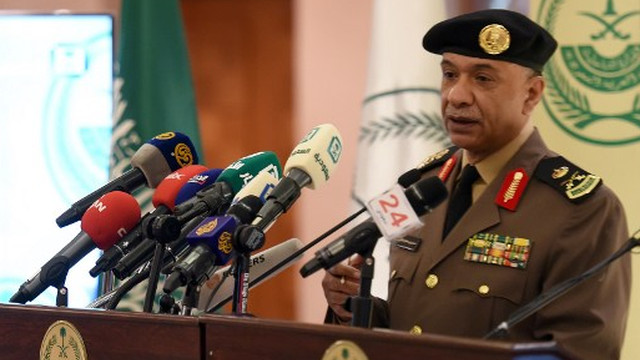
TEHRAN, Iran – Saudi Arabia will pay "a high price" for executing prominent Shiite cleric Nimr al-Nimr on Saturday, January 2, Iran's foreign ministry said.
Ministry spokesman Hossein Jaber Ansari strongly condemned the execution, which came after his Shiite country repeatedly asked its Sunni-ruled rival to pardon the cleric.
"The Saudi government supports terrorist movements and extremists, but confronts domestic critics with oppression and execution... the Saudi government will pay a high price for following these policies," he said, quoted by the official IRNA news agency.
Nimr, 56, was a driving force of the protests that broke out in 2011 in Eastern Province, where the Shiite minority of Saudi Arabia complains of marginalization.
"The execution of a figure like Sheikh al-Nimr, who had no means to follow his political and religious goals but through speaking out, merely shows the extent of irresponsibility and imprudence," said Ansari.
For its part, the Basij student militia connected to Iran's elite Revolutionary Guards called for a demonstration on Sunday afternoon in front of the Saudi embassy in Tehran.
Sparking anger
Saudi Arabia on Saturday executed a prominent Shiite cleric behind anti-government protests along with 46 other men, drawing angry condemnation from Iran and Iraq.
The execution of Nimr al-Nimr and the others, including Shiite activists and Sunnis accused of involvement in deadly Al-Qaeda attacks, was announced by the Saudi interior ministry.
It prompted calls for demonstrations, with the brother of the 56-year-old cleric warning it could stir more trouble in oil-rich Eastern Province where Shiites complain of marginalisation.
"This action will spark anger of (Shiite) youths" in Saudi Arabia, said Mohammed al-Nimr.
The interior ministry said the 47 men had been convicted of adopting the radical "takfiri" ideology, joining "terrorist organisations" and implementing various "criminal plots".
A list published by the official Saudi Press Agency included Sunni Muslims convicted of involvement in Al-Qaeda attacks that killed Saudi and foreigners in the kingdom in 2003 and 2004.
One of those executed was Fares al-Shuwail, described by Saudi media as Al-Qaeda's top religious leader in the kingdom. He was arrested in 2004.
Notably absent from the list, however, was Nimr's nephew, Ali al-Nimr, whose arrest at the age of 17 and alleged torture during detention sparked condemnation from rights watchdogs and the United States.
All those executed were Saudis, except for an Egyptian and a Chadian.
Some were beheaded with a sword while others were executed by firing squad, said interior ministry spokesman Mansur al-Turki.
Executions have soared in the country since King Salman acceded the throne in January 2015, with 153 people, including convicted drug-traffickers, put to death last year, nearly twice as many as in 2014. – Rappler.com